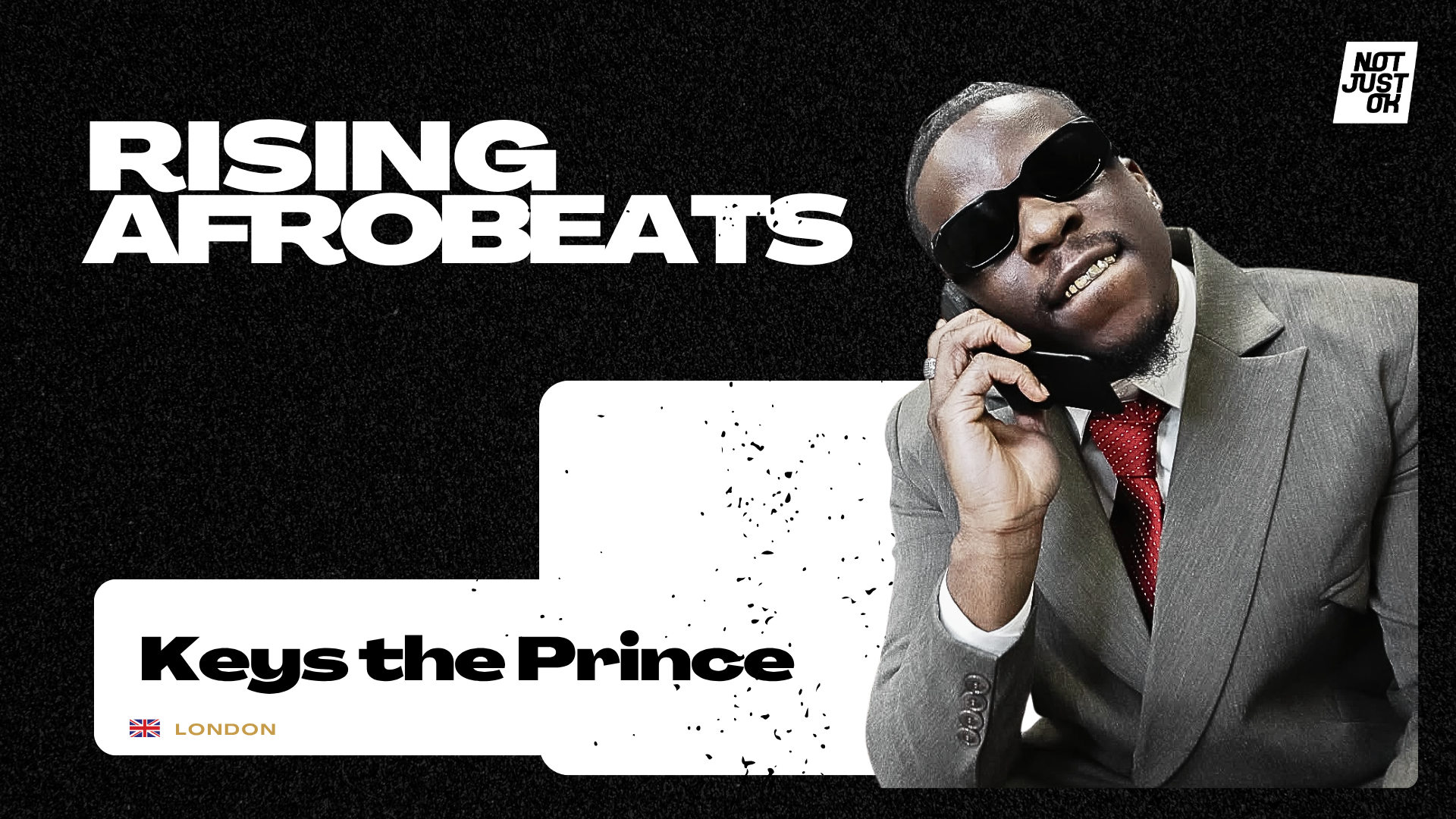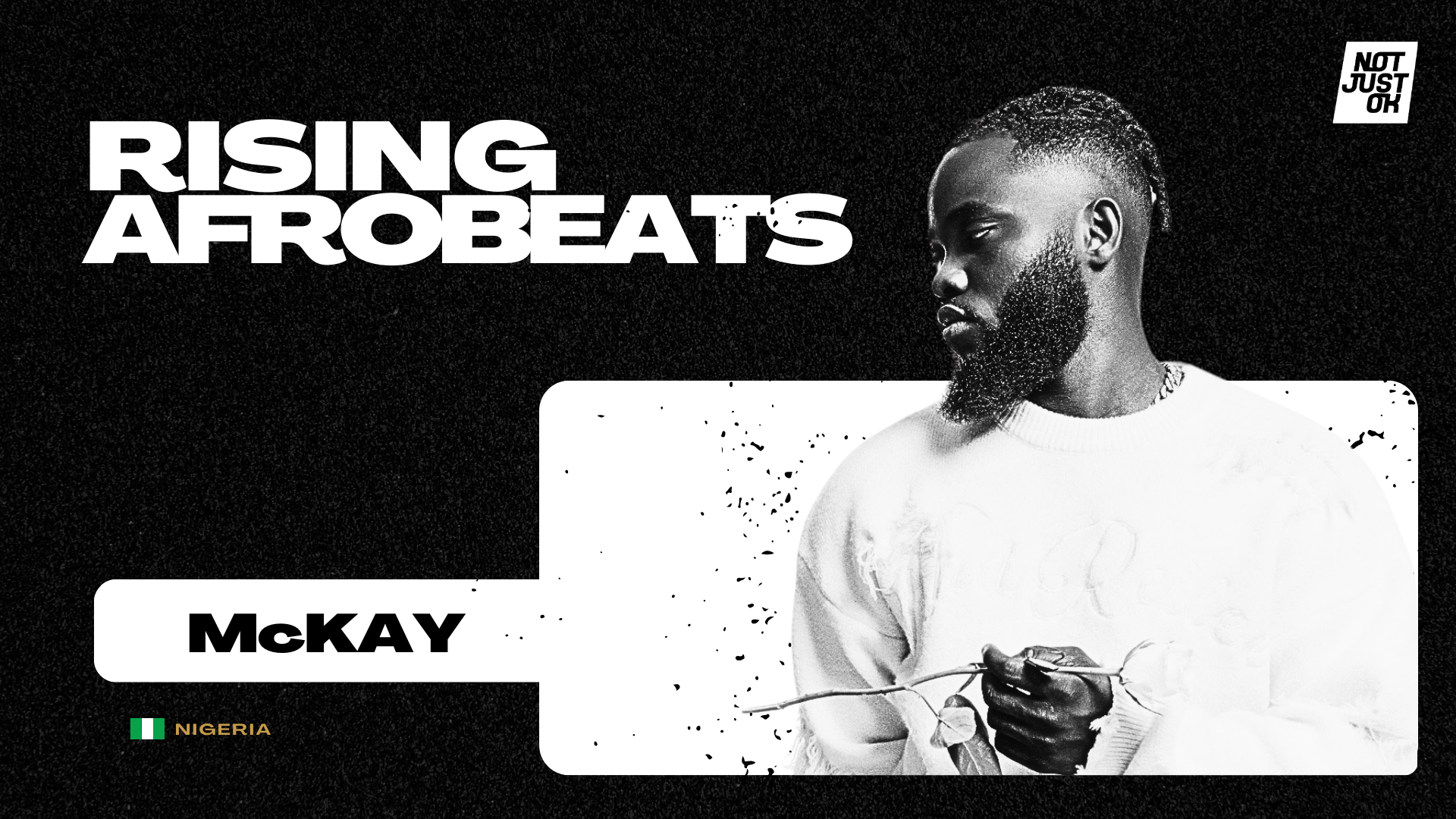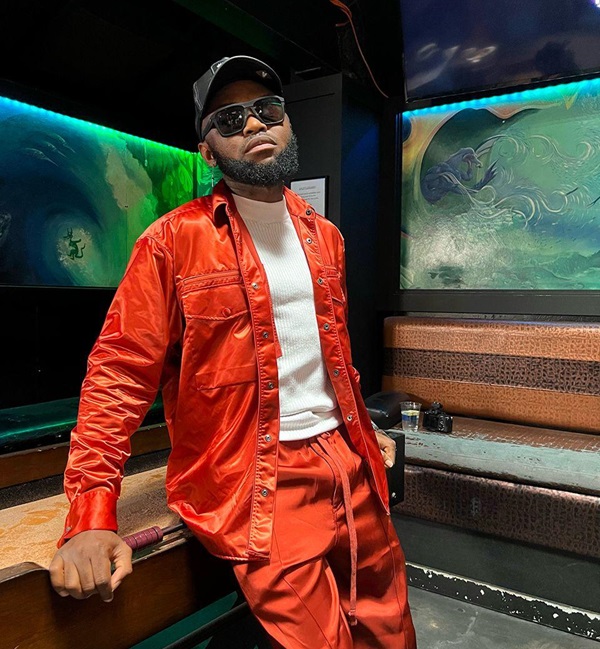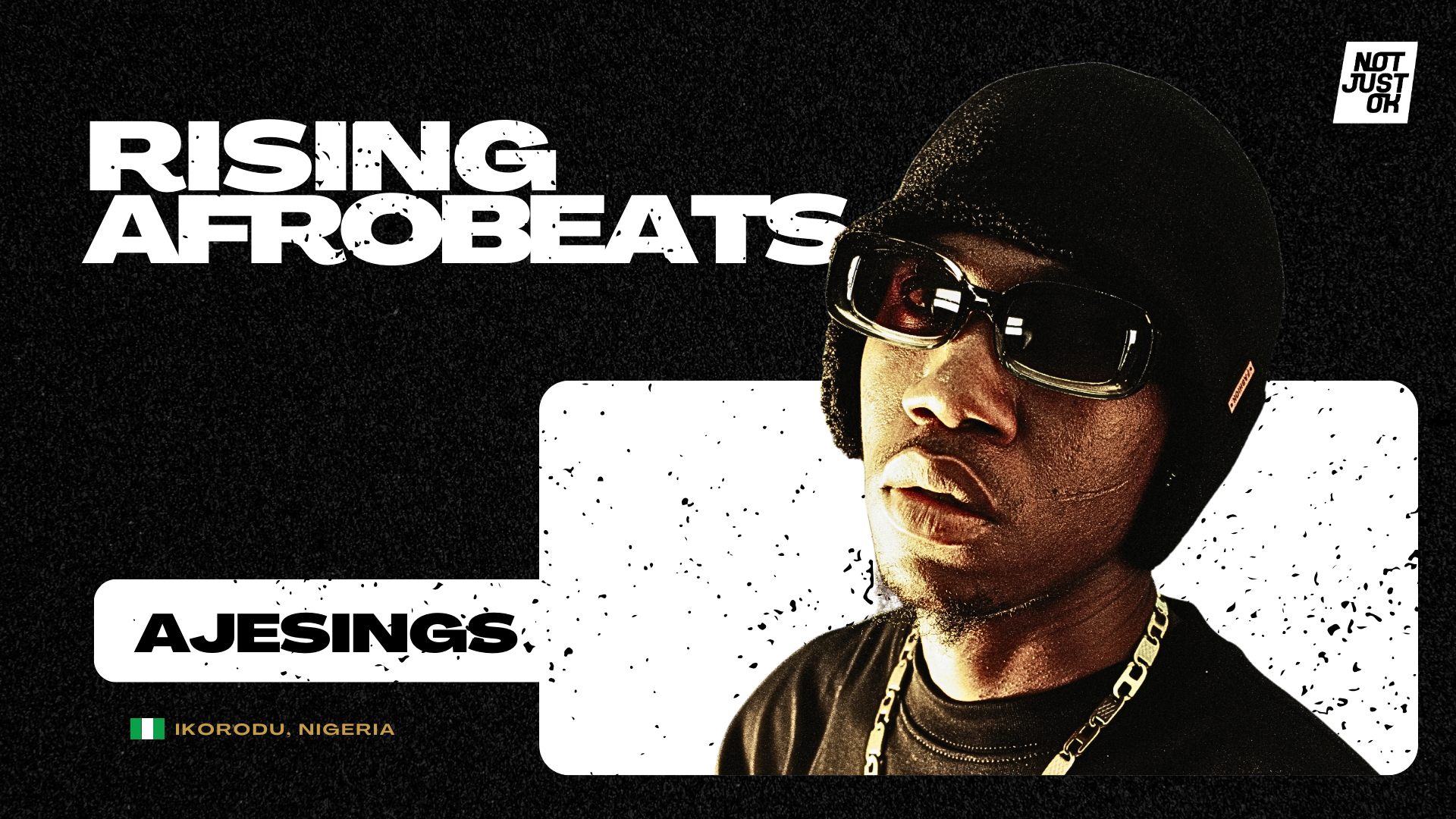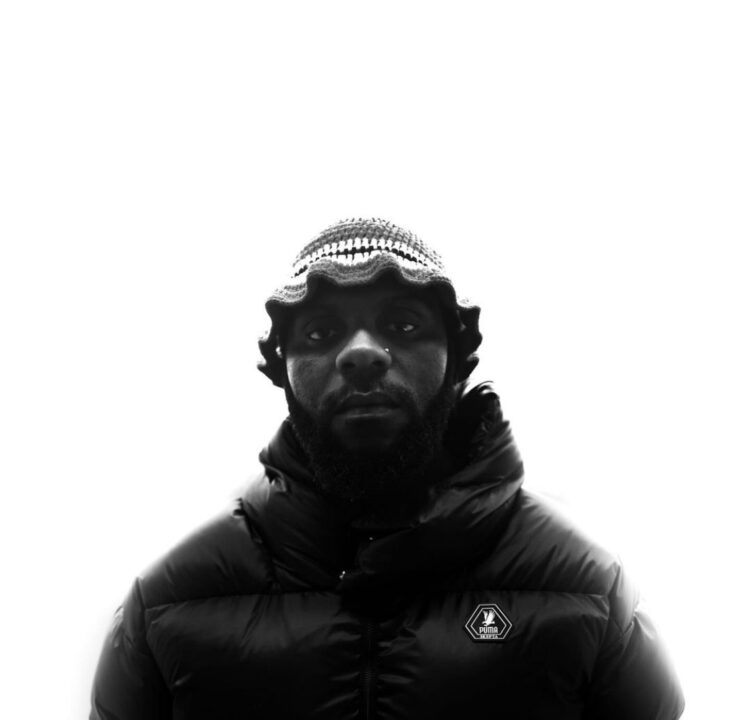Top Afrodancer, Izzy Odigie Speaks to Notjustok On Underappreciation of Dancers, Wizkid's Ginger & More.
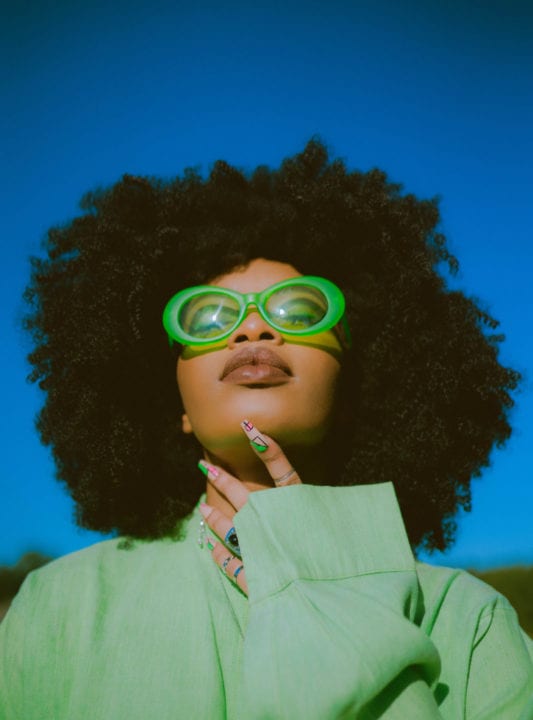
It is commonly believed that the Nigerian dream is to migrate out of the country to developed nations and benefit from the structured lifestyle they offer. But when choreographer and Afrofusion dancing sensation, Iziegbe 'Izzy' Odigie came back to school in Nigeria at the age of three, she had no idea that for her, it would put her on the path to her dream job as the aforementioned, a job where she would with her movement and art, be one of the key personalities helping to export Afrobeats to the diaspora.
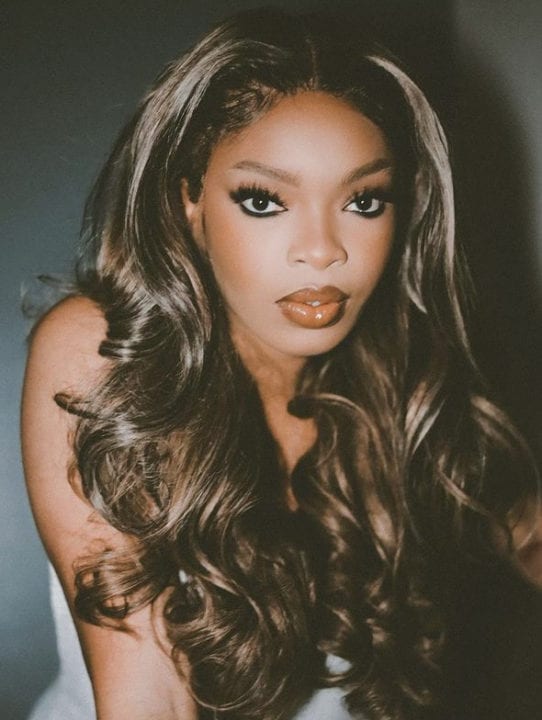
Iziegbe 'Izzy' odigie
It’s 6 years since Izzy set out on that path, and she’s fully in her element as the dancer she’d hoped to become after going back to the states and finding herself in the frenetic moves of Afrodance and the escapist music that feeds the culture.
For Notjustok’s celebration of Women’s History Month, we talk to four women powerhouses in different sectors of Nigeria’s male-dominated music industry to give them their flowers as and at when due and also examine the work that needs to be done in order for the near myth of equality to become reality.
Izzy Odigie makes the third of four with these women and in our chat with her, we delve into how she found her path as a dancer, what it’s like to be one of the leading dancers of Afrofusion and also what equality or the lack of, looks like in the dance sector.
You're a huge dancing personality in the Afrobeats scene and in an era where African talent is being recognised globally, how does that feel for you?
It feels amazing because when I started in 2014, the wave in America for anything afro-- anything Afrobeats, Afropop, Afroswing, wasn't existent at that time, the closest you'll come to celebrating Nigerian pop music was when you go to parties with your parents, or Edo or Ibo convention.
And then building a career at that time when there was no certainty or plan whether this trend at that time would last. And now, 6 plus years after, seeing how everyone around the world is embracing the culture and I'm glad that I'm still here as one of the characters helping push it forward.
We all danced as kids but for you, it's different because you're making a career out of it. How did this come about? How did you decide that was what you wanted to do?
Like you said, we all danced because I went to Negbenebo in Benin City for 6 years and during inter-house sports, we had this dancing competition as one of the sections. We also always used to perform at socials, battle your classmates, go to different competitions. So for me, dance has always been there but when I went back to the States where I was born, I was doing more hip-hop.
A lot of Nigerians and Africans in the diaspora need ways to connect back home so one thing they do is ingest music that is coming out as much as possible. So when I was in college-- I like to say, Afrobeats found me. I started to fall in love with African music once again thanks to Wizkid's Back to the Matter so I started listening to a lot of the music again and googling stuff and checking out the dances on Instagram and YouTube.
ALSO READ: International Women's Day: Celebrating 10 Women Behind the Music We Love
Basically finding the love for the dance, I combined it with who I am and I was able to make it into a career cause a lot of people were interested and wanted to know how I did some moves and eventually asked for my crew and me to perform for them. So for me, I just saw a demand and decided we’re going to corner that market and brand it properly.
The culture in the US is different from here, how was the move for you, and would you say it opened your eyes to the possibility of having a career in dance?
I came to Nigeria at the age of 3, so technically, life started for me in Nigeria because I don’t remember much. So the shift was more so growing up in Nigeria, then going to the US. I was taken to middle school instead of high school because at 11, I was too young for that. And there was the bullying and the ‘Why are you dressed this way’ ‘Why do you sound this way’ questions.
So I was just in survival mode, trying to find a way to make my environment more comfortable for me, so I found dance.
I didn’t think I was going to be as big as I am now but I felt this is the path and there was just something in me that made me feel this was the way I had to go even when I couldn’t prove it.
How did you discover that you wanted to express your art with Afrodance?
It just felt right. I was part of the Hip-hop community at first in the DMV area, there was just a certain angst before performances where I’d literally feel so nervous, I’d have to punch or pinch myself in order to feel pain to distract myself from the nervousness. But with Afro, I felt so at ease like I’d still feel nervous but when I’m getting ready to perform, I know that I already know the song, the flavour, and what the artiste is trying to say to the audience. It’s like you feel it on a deeper level. So it just felt right, like I was combining who I am with what I do, it’s soulful. I think that’s why a lot of people gravitate towards African music and dances, it’s very soulful. You can do the Shaku shaku any which way and put yourself into the movement and sound and you connect.
Your breakthrough moment was this freestyle dance to Eddy Kenzo’s Performance of Sitya Loss, did you plan for that moment to happen?
It was just luck because even the person that recorded it, she was not a hired videographer and was just in the crowd, attending the event and she sent it to me afterwards. It wasn’t something I planned on. During soundcheck, they said there was going to be a freestyle session where people would come up so when it was my turn, I did my thing and it just happened to be captured.
Even when it was trending on Twitter, Facebook, and Instagram with people asking “Who’s this?” I didn’t have Twitter and no one knew me. It was a beautiful moment.
What would you say has been the highlight of your career?
I went to Japan for a class tour, normally I have an annual class tour and I’ve done three class tours where I travel within a country to different cities and I teach a viral choreography of mine and brand it in a way where it’s like I’m going on tour.
For 2019, I was able to go to Japan and tour some cities. I taught a couple classes, some club appearances I was a judge for an Afrobeats battle. And it was beautiful to be the first Afrobeats dancer to tour Japan and just seeing how they love black culture, from dancehall to Nigerian pop music culture and Ghanaian pop culture, it was very beautiful-- seeing Asians trying to Shaku shaku and Zanku.
You were the subject and muse of the dance video to Wizkid's Ginger video, can you tell us about that experience?
For me, the video was full circle because Wizkid's Back to the Matter produced by Maleek Berry was the song I listened to in 2014 and I was like "Who is this man singing the song?" So he's the one that made me fall in love with Nigerian pop music and I started finding artistes that I hadn't heard of that time and listening to the music.
As my career started to grow, I felt like I always knew people within his camp and I've always been pitching to work with him and do different things but it never happened. At some point, I acknowledged it as a dream but decided not to think about it as much. And that was when Jada, Wizkid's manager reached out to my manager and said I could create whatever I want to Ginger and asked to send me the track and a budget.
I asked if they had an idea or direction they wanted so it isn't drastically different from the music video but they told me to just create something.
So I listened to the song and I felt like it was extremely sexy so I went with that vibe, created the video and they loved it.
It was a beautiful experience to finally work with him in that capacity and for them to use it as the official dance video, I didn't know it was going to make that much of an impression on them, so I'm happy for that.
Players in different sectors of the music industry always tend to feel and be underappreciated, would you say Afrofusion dancers are not getting their flowers, what do you think about appreciation in the industry?
I don’t think Afrodancers are getting as much love as they should in time. For example, Picture Kodak, a Nigerian dance icon who passed away last year. She was in say 85% of music videos that showed around that time on Tv but she wasn’t getting due attention. Imagine she was walking down the streets of Nigeria, there wouldn’t be a mob around her, and she was that big. But if someone like Poco (Lee) is walking down the streets, people would go mad. But with Kodak, the energy wasn’t quite there until she passed, I’m not sure why. So we need to receive our flowers when we’re alive. This is also an icon, does she have to be connected with an artiste in order for you to celebrate her time, energy, and creativity she’s put in in the industry?
ALSO READ: From Odunsi to Tay Iwar, Kimani Moore is the Alte Talent Manager Extraordinaire to Watch
Even when she died as an icon, blogs were using photos of her with artistes. And Kodak was the first lady of Westsyde Lifestyle, she was basically the pioneering woman of Afrodancers in Nigeria, she was a fashion enthusiast and an overall personality. But when she died, you’re picking up the stories because she has a picture with Olamide, Burna Boy and Wizkid.
It feels like at the end of the day, the value of the dancer is only based on which artistes they’ve worked with. I feel like dancers like Poco, he’s slowly changing that narrative but more women need to be in that conversation. There’s Boluwatife who’s in 85% of these videos and she’s a woman, treat her with that energy like she’s a queen when she’s walking through the streets, there’s Tiwa Pearl and the 4 surviving members of Westsyde lifestyle. These are people entertaining us 24/7. They’ll do dance classes, they’ll do dance videos for YouTube and Instagram, they’ll dance in your videos, they’ll perform live on stage, where is the love?
Even if you talk to producers and video directors, everyone feels undervalued. I think once each sector starts to create their own fanbases maybe their own publication, for instance, a magazine that just covers dance or an online publication. It’s just about trying to have the conversation with different people in different sectors so hopefully, someone may see this and decide to check out the dance scene in Nigeria, Ghana, New York and help out or invite us to your spaces. Because a lot of dancers have large fanbases. I guess it’s about finding ways to tap into that sector and make sure we’re part of history as well because Afrodance is doing a lot for the spread of Afrobeats around the world.
Your dance film, Iziegbe highlights the importance of giving credit as and at when due, what inspired this production?
I wanted to give flowers to people who have aided in my growth and have invested in me through blood sweat and tears and any other ways. The people who have taught me and raised me to have the mindset that I have and those who have inspired me in my career, life and love.
So the project was to capture my essence and my journey 6 years in and putting it out there.
In the dance industry, credit is such a huge part especially being an Afrodancer, we're basically freelance workers and a lot of us struggle with credit and pay.
And I don't know if it's just as important or more than monetary value because the credit is how you get the next job, especially in this industry because you eat based off of your referrals. So with this, I wanted to credit everybody, from the videographers who shot my videos when I first started, for free. To the photographers that have worked with me to music editors cutting my music till midnight. To my parents, to my friends, to Kodak most especially.
We lost a dance icon and the dance industry is going to continue to keep her alive.
So the film was to see where my mindstate was at and it's to give everyone their flowers while they’re still alive.
In conversation once with OkayAfrica, you cited ignorance from people about your art as a problem you face. Is that still a thing and can you tell us about it?
Well, this was back in the day when we started to perform. For instance, when we walked into a hall we’re to perform with our shredded skirts made from ankara, or if I said I was a dancer people would look at us like I was jobless. It’s still there to a degree but it’s not as bad as it was before. Even now during the pandemic, I can’t be moving as much I used to cause when I came back from Ghana in early 2020, I was going on my fourth class tour and then everything stopped. So now I’m at home, there’s my parents or just family saying “Oh you can go back to school, you should do this or that. You’re not doing anything. You say you’re a dancer, go and get a real job.” All these different things but if Covid lifts tomorrow and they say ‘Izzy, there’s a gig here for you’, do you understand that I’d drop my books or a job and I will go?
I have a degree in Psychology and my uncle was telling me I should be a caseworker. So I tried to break it down to him and told him that in the instance where I have a child and they call me and say Davido needs you to be in a music video tomorrow, would I call the child to say ‘Hey I’m so sorry, I know you’re suffering from ADHD or depression but I gotta go, I have a music video, peace.’
So I’m trying to tell them that I’m not trying to not get a job because I’m lazy but because this is my career, and I’m married to it. It’s a waiting game but I think now slowly but surely, my parents, family and friends are starting to get it. Like they see gigs that I do and they go ‘Niceee!’ Or let’s say their friends at work show them my videos. Now my mom is like “You’re in Nigeria, make sure you get contracts o, you can be dancing for so and so.” So I think it’s slowly changing.
The music industry as we know is male-dominated and sexist, what of in the dance sector? Is sexism a thing there and have you encountered it?
Here, women get more opportunities because the music industry is very male-dominated, they would most times want female dancers than male ones because they want sexiness. But regardless of gender, I’ll say it’s more so about branding, what value are you bringing to the table and more.
ALSO READ: Meet Director Pink the 21-Year-Old Female Director Behind Chike's Videos ft Simi & Mayorkun
However, I’ll say that men that are great at what they do are just celebrated more. Even in the music industry, if Tiwa is going down the street and Wizkid is as well, they’re both A1 list stars, but it would be different and I don’t know if it’s a gender or branding thing but that’s just my observation.
Let’s talk about Trybe Dance.
I co-founded it in college and it started off as a dance team but one thing I realised is that people are not too good with commitment, so I decided to change it into an agency. So let’s say I was to choreograph for Afro Nation, I did in 2019, I would hire the dancers through Trybe which is a registered company under Third World which is my family company. So I hire dancers for live shows, Instagram campaigns, events under Third World in collaboration with Trybe. It’s just a dance agency that hires dancers all over the world, we get them paid, we negotiate for them, we represent them with legal contracts. And I also do a section called Trybe Conversations which I started last year and I was able to bring in industry heavyweights like Audu Maikori, Kaffy, Mr. Duke Osita, and Amanda Osuagba, basically connecting dancers with different characters that can help them understand how to manoeuver in the industry.
You’ve mentioned once being scared to express yourself freely-- this was the period where you were moving from Nigeria back to the US, this year, the theme for the International Women’s Day was Choose to Challenge and by finding yourself with Afrodance, you’ve done that. What would you say to the little girl out there scared to find herself?
She may not find herself if she’s scared to be herself and she’s doing the world a disservice by not showing herself fully because if we’re both choreographers and we choreograph to the same song, we’re going to interpret it differently. Even if we’re doing the same style, you might choose to use a Kpakujemu and I choose to use a Shadia but we’re both interpreting the music our way, so now I look at your piece and say I relate more to this Kpakujemu, and someone else might look at the other one and relate more to it. But if let’s say I look at your routine and think, ‘I want to be more like her’, I’m going to take what she’s doing and I’m going to do it exactly like that, now you’ve lost the person that could have connected to you if you did it your way.
You can’t please everyone and everyone can’t love you so the only thing that you can control is being yourself. So if you’re yourself and the people who gravitate towards you, love you for who you are, that’s easier than having to fake a persona or suppress yourself to bring in people who would love someone that is not you and then you have to teach them who you are, that’s too much work. So be yourself and do.

